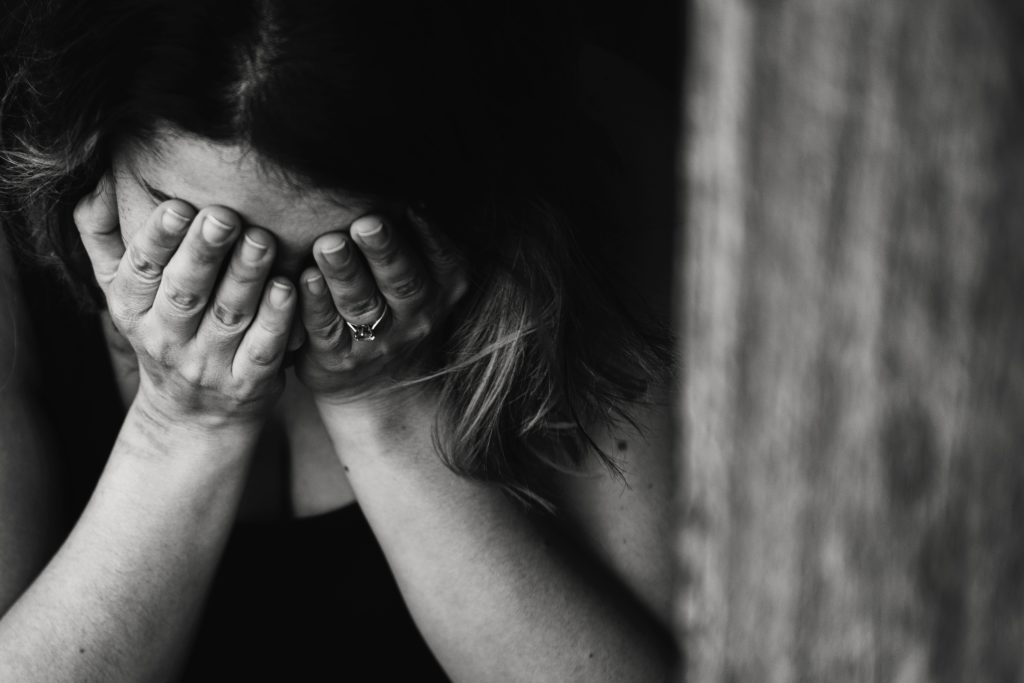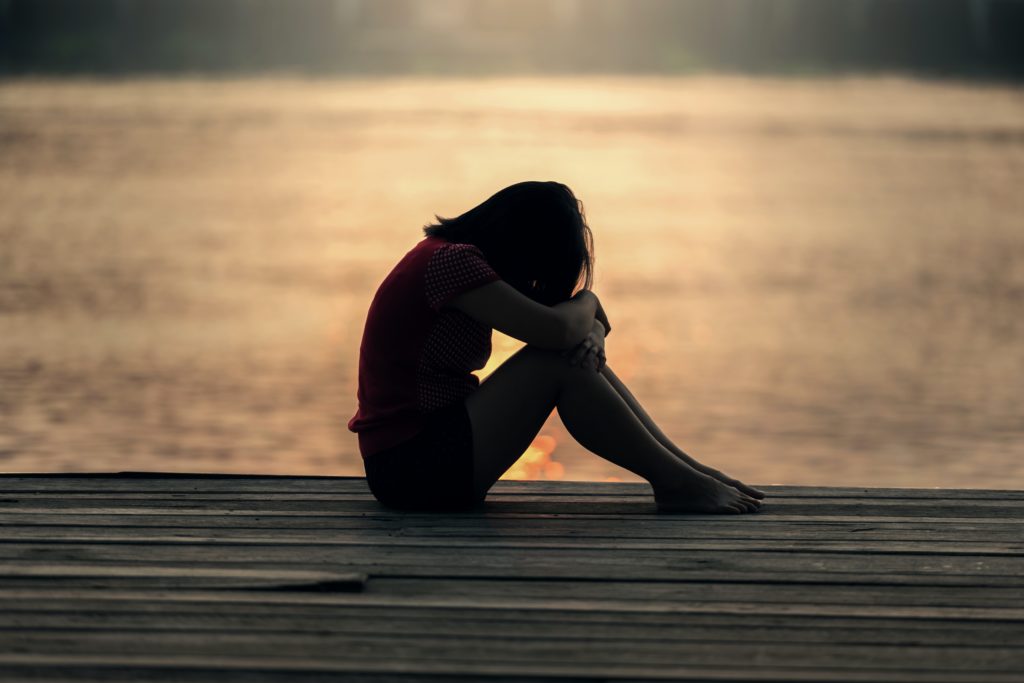
We often think of depression as being caused by loss. Things like death, or loss of an important relationship, loss of job or status… Sometimes there is a period when everything is going well, then suddenly things begin to go equally badly. You can experience a sort of whiplash that occurs that brings on depression when fulfillment changes to deprivation.
But there’s another type of depression that works surprisingly differently. Self-blaming depression. In this case, you feel the loss you experience as a form of punishment for your failures. When that happens, it’s harder for you to be supported or comforted, because you’re convinced you don’t deserve comfort or support. In fact, you blame yourself mercilessly…
Celina had been a happy preschooler, confident, expecting others to believe the best of her. She had a spring in her step and joy in her heart until her family moved out of state when she was in 3rd grade. She didn’t feel welcome in her new school, it was hard to make new friends, and she felt her teacher didn’t respect her.
The sunshine that had filled her life that she had enjoyed in her early years, seemed to disappear and be replaced by deprivation. Oh she had food to eat — but emotionally and socially her young heart withered. A crawling, creeping darkness seemed to ooze around her and inside her. She had no idea what was wrong or what she could do. So she just tried to muscle through.

Signs of depression mounted within her until by junior high she found it difficult to be in school, and stayed home more and more often. That continued through high school. Seeking to become something more, she married the first year of college… she just so believed that marriage would brighten her life. (It’s supposed to do that, right?) She believed her dreams finally would come true. But the problems of keeping college going in a new marriage was tough on their budding relationship and once again, sunshine was replaced with more deprivation. And depression took over again… leading to suicidal thoughts this time.
Eventually she was functioning with the help of an antidepressant, which helped. She got good at putting one foot in front of the other.
Then, came March of 2020, and the COVID-19 pandemic.
People worked remotely from home, and Celina was no exception. She lived with her small dog. Alone. All that isolation resulted in time to think about all her mistakes and misfires in her life. Month after month. Self-blaming took over her life.
She didn’t just think about her mistakes a little … or in passing. She thought about her missteps long, hard, and deep. How could she have been so callous? Insensitive? Uncaring? While she hadn’t intended offense at the time, she now was tormented about the pain and hurt she must have caused others. She couldn’t forgive herself.
Celina knew her situation was like everyone else’s. Her prolonged isolation wasn’t unique. Every few months she would drive a couple hours to see her family. They had all been diligent about isolation and felt safe to see each other. They were all fully vaccinated and no one in the immediate family had tested positive for COVID. These were good times — but they didn’t happen very often. And her mind felt compelled to chew on self-blaming for her failures to others.
But here’s the thing. All that time to think led to second guessing all the major mistakes she’d made in life, including decisions that weren’t even necessarily wrong. Certainly work takes time, but she was dissecting every decision of her life with all the time she had when she wasn’t working. And with each one, she came up short. Shame wrapped around her like a slithering serpent. She finally found it almost impossible to work.
And with the shame, a creeping darkness filled her like a fog, but so dark and suffocating. For a year or more she couldn’t seem to rise above it, to even breathe.
She thought about her younger sister, Suzanna, and how Celina believed she’d neglected Suzanna when they were girls, not including her when Suzanna had been lonely. She remembered times when she was impatient with her, intolerant of her quirks …and now Celina had no tolerance of her own treatment of Suzanna.

In spite of the fact that preadolescent girls cling to friends and private sharing, she could not give herself understanding or compassion for those failures. It was unreasonable to expect a mature, adult type of compassion and support in herself toward her sister, when she had been a preteen herself. But somehow Celina just couldn’t seem to see it for what it was.
She called her sister and told her how sorry she was for not being a better sister and friend when they were growing up. Her sister appreciated her intent, but knew they had both been just kids and didn’t want Celina to suffer over it. It was long in the past and she encouraged her to let go of it.
For Celina, that was easier said than done.
Medications to treat her depression that had worked for her in the past were just not working for her now. The depression was unrelenting. Period. It consumed her. The shame she felt for being such a selfish person threatened to eat her alive.
Do you torment yourself for your past failures? Maybe mistakes you made in adolescence… or in your relationships… or your marriage? Maybe in your childrearing?
For Celina, it was as though her compassion turned against her. Her compassion for her sister, when she’d been insensitive to her, was far greater than any compassion she had for herself. The shame threatened to swallow her up.
That self-blame was profound. And penetrating.
Celina needed to decide to forgive herself, just for being human. She needed to stop self-blaming… and start self-nurturing.
Yes.
It’s not hard to imagine how such deep depression created its own stress, combined with the stress of isolation, the pandemic, and her own self blame. That stress wears down synapse connections that create a network for signals to travel around the brain. To restore resilience and remission requires that those synapses be fleshed out again so that the network is in full function — so that you can flourish again.

And that can happen with IV ketamine treatment. It has for so many. When mRNA triggers DNA to release BDNF (brain-derived-neurotropic-factor), those synapses sprout like crazy, and like oak trees branch out in every direction, proliferating connections. And those connections can light up your emotions, giving you energy and hope…and the power to build a rewarding life.
Self-blaming depression is deeply stressful, and can be difficult to treat by traditional means, but IV ketamine treatment has the potential to restore the connections needed to get your brain working properly again.
You can turn that self-blame to self-compassion with IV ketamine treatment and practicing kindness toward yourself.
If that sounds exciting — if these symptoms sound familiar, and nothing you’ve tried has helped — just call us.
Self-blaming depression is self-defeating. But you can turn it around and enjoy your life again.
We’d love to help.

To the restoration of your best self,
